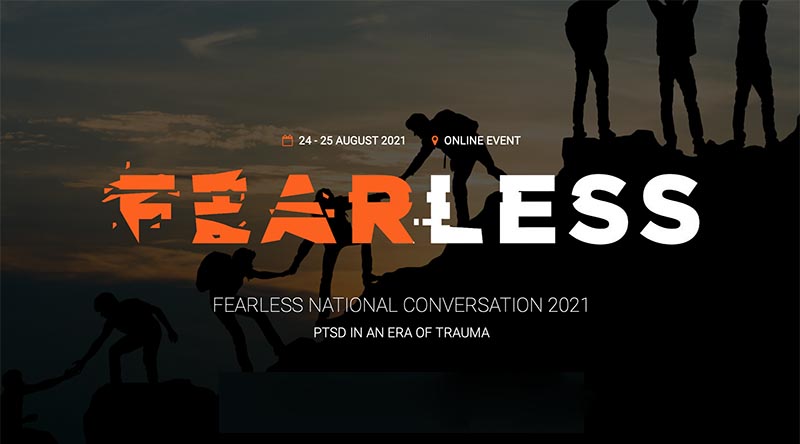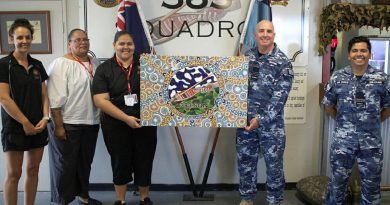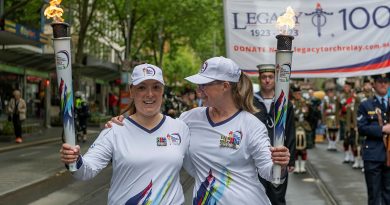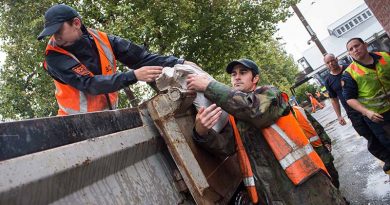Changing the narrative around PTSD through post traumatic growth
Share the post "Changing the narrative around PTSD through post traumatic growth"

After 35 years in the Australia Air Force**, including a harrowing peace keeping mission in Rwanda, Air Vice-Marshal (retd) Tracy Smart has an intimate understanding of post traumatic stress disorder.
However if the circumstances are right, Professor Smart believes it is possible to avoid the ‘D’ in PTSD and add a ‘G’ for growth.
“While much of the focus in recent years has rightly been placed on ways to manage and treat post traumatic stress disorder among military veterans and frontline responders, discussions surrounding other post-trauma trajectories have been somewhat neglected,” Professor Smart said.
“Exposure to trauma can often lead to post-traumatic stress but does not inevitably result in a disorder.
“In fact, in some people – like me – it can be a catalyst for positive change and growth.”
Now working at the Australian National University in Canberra, Professor Smart believes there are three critical factors in ensuring growth after a traumatic event – having a sense of purpose, an opportunity to talk about your experience and receive validation and getting help as early as possible.
“This is not something I did in a planned way, but they are three key factors that I believe allowed me to grow through the experience of post-traumatic stress,” she said.
Professor Smart will present at the FearLess National Conversation on PTSD 2021 which will run as an online, fully-interactive, multi-stream program over two days on 24 and 25 August.
“This is a great platform to highlight the work that is being done to develop treatments that actually give people a good quality of life and find their new normal, as well as give sufferers and those who love and care for them a sense of hope,” Professor Smart said.
The second FearLess National Conversation on PTSD will bring together the full spectrum of the community who are impacted by, work with or care for those living with PTSD.
The program aims to provide professional development for health professionals, first responders and anyone involved in the delivery of community services.
Each day will commence with plenary sessions before breaking into two concurrent streams, one focused on research and treatments, the other featuring case studies.
Both days will end with a 30-minute fully interactive discussion session which will enable participants to contribute to this important conversation.
In recognition of the current global crises the 2021 National Conversation will focus on topics that are impacting communities right now, with the theme ‘PTSD In an Era of Trauma’.
Lead plenary sessions include presentations on the impact of the Australian bushfire crisis of 2019/2020, dealing with PTSD during a global pandemic, domestic violence, and lived experience of the stigma of trauma.
FearLess Chairman and Co-Founder Chris Barrie said the 2021 National Conversation was dedicated to furthering the outcomes from the inaugural event in 2019 and continue to create a national network focused on raising awareness of PTSD.
“We are committed to providing a platform that informs and educates health professionals, community service workers and first responders, as well as support the community through sharing the latest information around research and treatment options,” he said.
“It is crucial that there’s a national approach to the treatment of PTSD and it is our goal to develop a community-owned and community-operated PTSD management protocol that will one day reduce the impact of post-traumatic stress on the lives of Australians.”
Early bird tickets to the 2021 National Conversation are available until 31 June with full-access virtual tickets still available for $199 and limited-access tickets available for $49.
Visit this web site to register or review the program.
**EDITOR’S NOTE: Literally one day after receiving the following assurance from Defence –
“Defence can confirm that the Royal Australian Air Force (RAAF) has not, and does not intend to discontinue the use of either the national indicator ‘Australian’, nor the ‘Royal’ prefix approved by King George V in June 1921. However, it is also acceptable convention to refer to the RAAF as ‘Air Force’; particularly in the domestic context, or where mentioned in conjunction with their sibling services Navy and Army”
– not using the name in conjunction with their sibling services Navy and Army and, feeling the need to clarify that they were referring specifically to our domestic air force as opposed to any other air forces, they pointedly exclude the ‘Royal’ prefix approved by King George V in June 1921.
No wonder my PTSD is triggered 😉
.
.

.
.
Share the post "Changing the narrative around PTSD through post traumatic growth"





